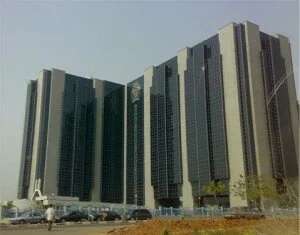 The most revealing thing about the latest new guidelines for non-interest banking issued by the Central Bank of Nigeria (CBN) on June 21; the provisional license given to Jaiz International to launch the country’s first Islamic bank subject to fulfilling the bank authorization requirements; and the revelation that the Nigerian Treasury’s Debt Management Office is studying the possibility of the country issuing its debut sovereign sukuk within the next year or so, is not the provisions of the above developments but the reaction of Nigerians (presumably) commenting on the websites of local newspapers and other such outlets.
The most revealing thing about the latest new guidelines for non-interest banking issued by the Central Bank of Nigeria (CBN) on June 21; the provisional license given to Jaiz International to launch the country’s first Islamic bank subject to fulfilling the bank authorization requirements; and the revelation that the Nigerian Treasury’s Debt Management Office is studying the possibility of the country issuing its debut sovereign sukuk within the next year or so, is not the provisions of the above developments but the reaction of Nigerians (presumably) commenting on the websites of local newspapers and other such outlets.
Disturbingly these ranged from vitriolic Islamophobic rants which linked Islamic finance to terrorism financing and forebodes the transformation of Nigeria into a new Jihadist haven, to flattering admiration for Mallam Lamido Sanusi, the governor of CBN, for rising above the critics and facilitating the introduction of Islamic finance under financial inclusion policy. The few voices that saw Islamic banking as an alternative form of financial management to the interest-based capitalist conventional system and more connected to the real economy and with a potential to contribute to development in Africa’s most populous country for the benefit of all Nigerians, hardly had a look in.
It would be unfair to draw generalizations from such a sample of comments, but in relation to recent statements from various groups and the sensitivity of the CBN over the matter, it becomes apparent that under the surface Nigeria is a highly sectarian society, which is further fuelled by the constant reinforcement of stereotypes on all sides of the ethnic and religious divides. Nigeria has a population of about 170 million which is roughly half Muslim and half Christian.
This is unfortunate because Nigeria in general is a highly educated society but with huge developmental challenges because of governance shortcomings in which the military have had a pervasive influence since independence, endemic corruption and economic mismanagement.
In June, the Dioceses in the Church of the Nigeria Anglican Communion appealed to the country’s House of Representatives and the Senate not to pass any legislation to facilitate Islamic banking in the country on the grounds that it would pose a serious threat to the unity of the federation; it would violate the country’s secular constitution; and favor one particular religious group.
Predictably, the Muslim Rights Concern (MURIC) of Nigeria weighed in, stressing the constitution guarantees freedom of religion to all Nigerians and that denying the establishment of Islamic banks would deny some Nigerians the right to have access to financial services based on their faith tradition, or alternatively force them to become unbanked or to use interest-based banking.
Continue Reading….
